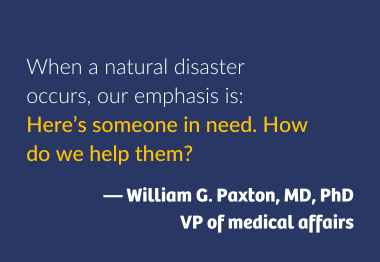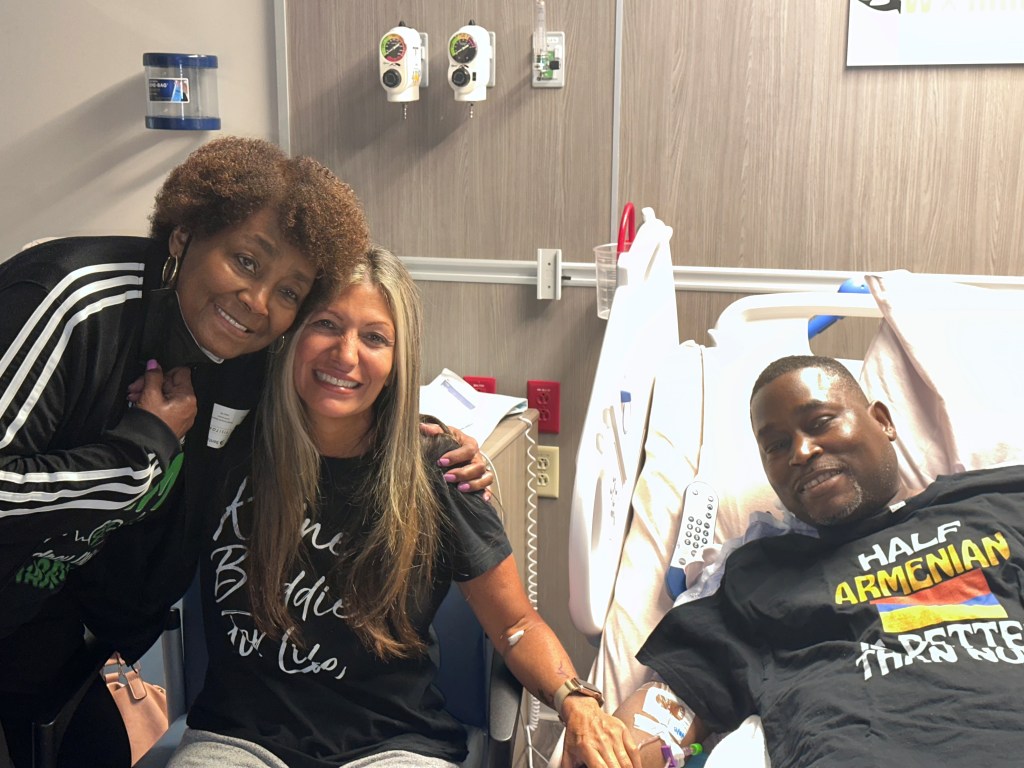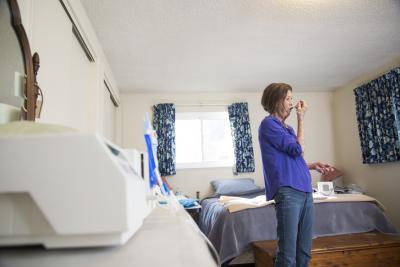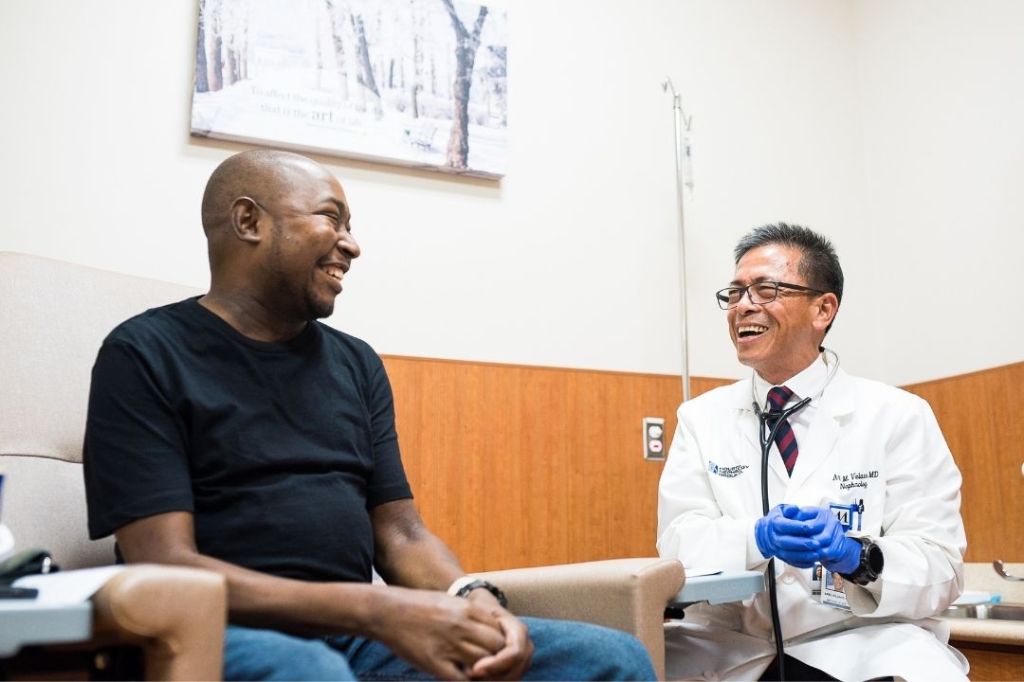Protecting Patients When Natural Disasters Hit Our Communities

William G. Paxton, MD, PhD, Vice President of Medical Affairs for DaVita
Last year, Hurricanes Helene and Milton devastated communities along the Gulf Coast and southeastern U.S. Storms like these are a true test of preparedness for healthcare providers. DaVita’s ability to mobilize swiftly and efficiently in collaboration with neighboring physicians and providers, as well as state regulators and officials, made a critical difference in maintaining access to care for patients on dialysis.
With a sustained focus on preparation, activation, adaption and evolution over more than two decades, we know it’s important to have plans, resources and protocols in place and ready to deploy well before storms like Hurricanes Helene and Milton are set to hit communities. This extensive year-round planning has proven effective as DaVita has helped support thousands of patients during weather emergencies by preparing clinical teammates, reinforcing policies and procedures, and connecting with patients ahead of and throughout the emergency situation.
 |
Communications continuity is imperative. Even before storms make landfall, DaVita’s teams are activated to monitor anticipated impact and initiate outreach to patients to discuss important considerations: diet plans, dialysis scheduling, resources to find open centers and more. This proactive approach helps alleviate uncertainty for patients. It also provides clarity for them to make informed decisions and protect their health during a natural disaster.
Additionally, with a national footprint, DaVita maintains access to resources to equip local care teams to sustain or re-establish care in emergencies as needed. This includes staging people and supplies, like generators, water and fuel. With centers across the U.S. and trained responders ready to deploy, DaVita can rapidly activate its response when needed with the goal of minimizing disruptions to care.
Mobilization and the Power of the Pivot
Multiple command centers helped coordinate efforts before the Helene and Milton storms. These efforts continued during and in the aftermath of the storms, with more than 30 operational touchpoints to support patients’ needs. DaVita deployed resources during both storms, totaling:
- 55 generators
- 12 water tankers
- 20,000+ gallons of fuel
For Helene, specialized teams were dispatched to areas with flooding and high-water conditions to locate patients and teammates and to support dialysis centers in operating safely.
The preparedness as well as the coordination mitigated impact: Within four days of each storm’s landfall, 99% of centers in North Carolina and 100% of centers in Florida that experienced closures were open and operational to provide crucial access to life-sustaining treatment.
During Hurricane Helene, DaVita’s preparedness enabled teams to manage on-the-ground needs while also navigating a new challenge: with significant damage to Baxter’s manufacturing sites for saline and peritoneal dialysis solutions, the kidney care community had to act fast to address critical supply challenges. At DaVita, we leveraged strong relationships with vendors to support interrupted access to care for our patients, including continued peritoneal dialysis treatments for established patients.
Unified Efforts: A Shared Commitment to Continuity of Care
Restoring operations in these regions required collaborative response teams on the ground, doing everything they could to support access to care. Together with other providers and physicians in the region, DaVita teams took the critical step of reaching out to patients to check in on their needs, share updates on storm impact, and reschedule appointments as needed.
Over 70% of patients in natural disaster-prone areas have more than one DaVita dialysis center within 20 miles of home. In the face of an emergency, providers often collaborate to offer alternate sites of care to patients, regardless of where they usually treat. Ensuring adequate resources, supplies and staffing to support the needs of patients is a collaborative, unified effort.
Two days after Helene subsided, I traveled to Dublin, GA, with a load of food and supplies for care teams there. While Dublin experienced damage from the storm, it also served as a central hub for surrounding areas that had experienced severe impact. Many dialysis centers in the rural areas surrounding Dublin were unable to provide treatments for patients for up to seven days after the hurricane. However, DaVita Shamrock in Dublin was fortunate not to lose power and was operational through the storm. Care teams traveled from the surrounding areas to help provide access to anyone in need from that central location.
With a shared goal of being there for patients, the care teams all pitched in to support one another, too. Many team members were still experiencing storm-related challenges in their personal lives, such as scarce access to fuel to get to and from work, or damages and power outages in their homes. Local operators went above and beyond to make sure care team members had basic supplies, including shelf-stable foods to take home, and access to fuel to travel amidst many rural gas stations remaining without.
As we continue to activate and update our emergency preparedness, we recognize that we do so as part of a broader kidney care community, and in collaboration with others. I have the privilege to serve as the DaVita representative on the American Society of Nephrology's Emergency Preparedness Initiative (EPI) committee, where we work with other providers, the CDC and other entities to develop content, websites and resources where people can on in the event of an emergency. And it’s so incredible to see how our community works together—because that’s what it takes to protect our patients’ safety during these events.
Whether it’s through collaborative work in the kidney community or through activations of our emergency protocols, patients and their safety continue to be at the center of what we do. When a natural disaster occurs, our emphasis is: Here’s someone in need. How do we help them?
Learn more information about the kidney care community's response, including DaVita's own activations, on Nephrology News & Issues.








